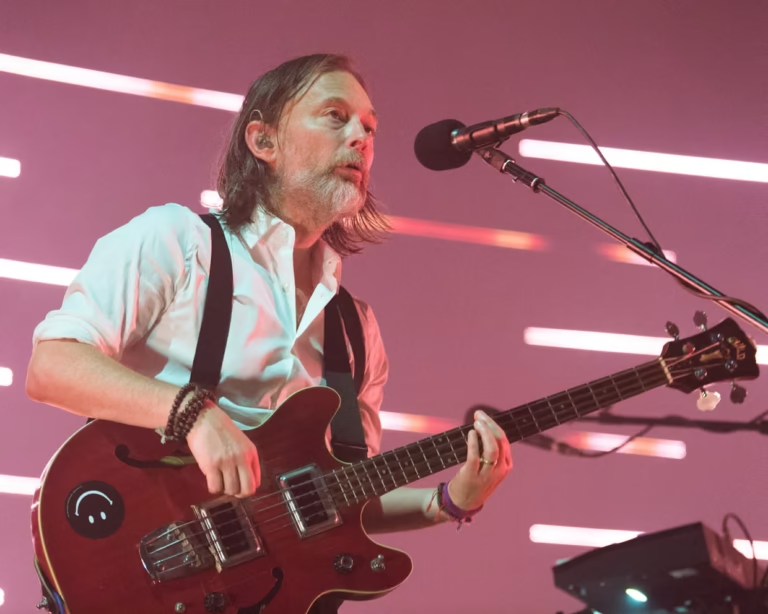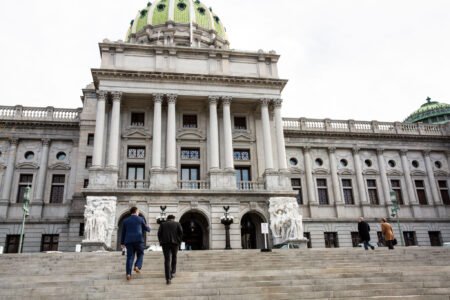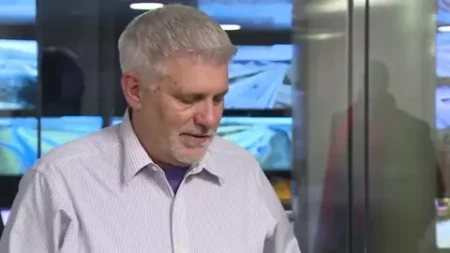Radiohead’s lead singer Thom Yorke has said he would “absolutely not” perform in Israel under its current government. The British musician made his comments eight years after the band last played in Tel Aviv, a concert that drew major backlash from pro-Palestinian activists.
Yorke told the Sunday Times magazine that he would not appear anywhere near the government led by Israeli Prime Minister Benjamin Netanyahu. “Absolutely not. I wouldn’t want to be 5,000 miles anywhere near the Netanyahu regime,” he said in the interview.
The comments come as Radiohead prepares for its first tour in seven years. The group is set to perform 20 shows across five major European cities starting next month.
The interview took place before a recent ceasefire agreement between Israel and Hamas. However, the topic of Israel remains highly sensitive for the band, which has faced repeated criticism for past performances there.
Before the new tour was announced, the Palestinian Campaign for the Academic and Cultural Boycott of Israel had already urged a boycott. The group pointed to guitarist Jonny Greenwood’s appearance in Tel Aviv in 2024 as a reason to renew their campaign.
Radiohead’s 2016–2018 world tour, promoting their album A Moon Shaped Pool, sparked controversy when they performed in Tel Aviv. Cultural figures such as British filmmaker Ken Loach criticized the band for ignoring calls to support the pro-Palestinian movement.
At that time, Yorke defended the band’s decision. In a message on social media, he wrote that performing in a country does not mean supporting its government. “We’ve played in Israel for over 20 years through many different governments. We don’t endorse Netanyahu any more than Trump, but we still play in America,” he said.
Yorke had also spoken against the boycott, divestment, and sanctions (BDS) movement in earlier interviews. He described it as “patronizing” and “offensive,” arguing that it placed unfair pressure on artists.
In the new interview, however, Yorke appeared to express regret over the 2017 concert in Tel Aviv. He said he was “horrified” when a senior Israeli official visited the band’s hotel to thank them for performing. That moment, he said, made him realize how their show could be interpreted as a political statement.
The band’s association with Israel has followed them for years. During a solo performance in Australia last year, Yorke was confronted by a pro-Palestinian audience member. The heckler shouted, “How many dead children will it take for you to condemn the genocide in Gaza?” Yorke walked off stage briefly, appearing shaken by the incident.
Later, Yorke said he was deeply affected by the exchange and felt misunderstood. He explained that his silence had been mistaken for indifference. “I was in shock that my supposed silence was seen as complicity,” he said. He also called Netanyahu and his government “extremists” who “need to be stopped.”
Guitarist Jonny Greenwood has faced his own criticism for maintaining close ties to Israel. He is married to Israeli artist Sharona Katan and often works with Israeli musician Dudu Tassa. Greenwood said he was “not ashamed of working with Arab and Jewish musicians” and had joined protests in Israel last year calling for Netanyahu’s removal.
Yorke’s latest comments mark a major shift from his earlier stance. The singer, long known for his political awareness and activism, has now taken a clearer position on the conflict. His remarks come amid growing global pressure on artists to take public stands on human rights issues.
For many fans, Yorke’s statement reflects the changing mood among musicians, as cultural figures increasingly weigh their public roles in international conflicts. While Radiohead has not confirmed whether they will ever perform in Israel again, Yorke’s words suggest that such a concert is unlikely under the current leadership.
As the band prepares for its long-awaited European tour, it faces both renewed attention and fresh scrutiny. Yorke’s decision to distance himself from Israel underlines how music, politics, and conscience often collide on the global stage.







